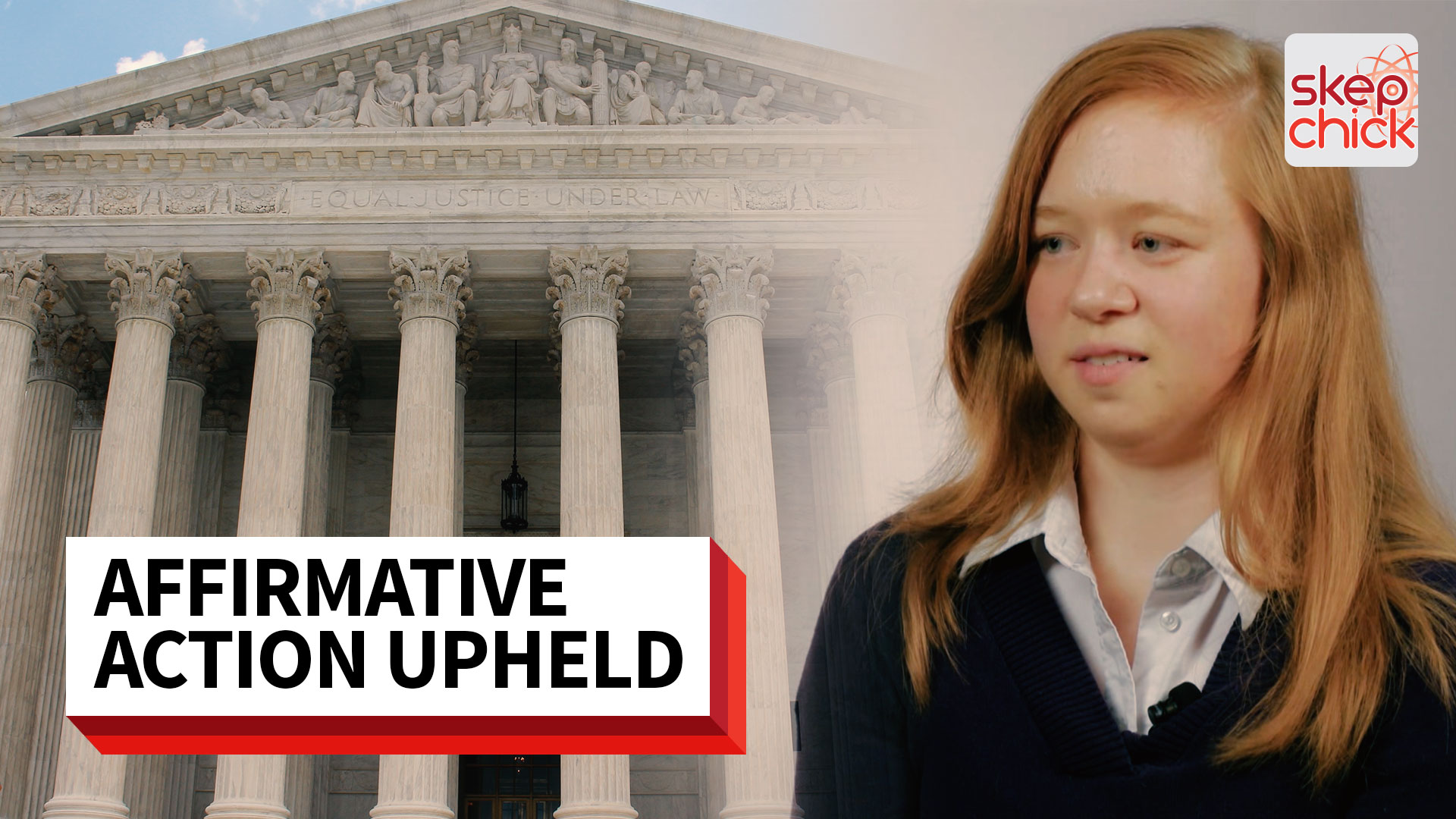
Sorta transcript:
The Supreme Court has just handed down a few judgments, including one regarding the constitutionality of race-based college admissions. Abigail Fisher was a high school student whose grades were too low to grant her automatic admission to the University of Texas (where any Texas student in the top 10% of her class can attend), and she apparently didn’t blow any minds with her extracurricular activities as she was rejected. She ended up attending and graduating from LSU.
Still, she found this to be a gross injustice, so she sued the University claiming that they rejected her because she was white. This is confusing for a number of reasons, not the least of which is the fact that the vast majority of students who were chosen instead of Fisher were also white, and a number of black and Latino students were rejected. But Fisher was a legacy, meaning her father attended UT, so she felt entitled. And as we all know, entitlement combined with gross mediocrity can only result in a bitter, pouty lawsuit.
The court ruled against her, but amazingly she wanted more people to realize what a sad, pathetic person she was, so she appealed. The case made it to the Supreme Court, not because she was the perfect model of a wronged victim but because it allowed them the opportunity to rule on whether or not race-based admissions are constitutional, even when used to accept a tiny minority of applicants as is the case with UT. Some states have outlawed them, so the Court had the chance to outlaw them nationwide.
They chose not to, which is good news for people who value diversity. The data conclusively show that when a state outlaws race-conscious admissions, diversity drops severely, particularly in the case of STEM fields (science, technology, engineering, and mathematics).
This mirrors the research on other areas where people try to institute “colorblind” approaches, which shows that when we try to ignore race, racial inequality gets worse. The best solutions for solving inequality appear to be addressing it head on, admitting that it exists and taking steps to mitigate it. As Fisher herself has proven, it’s possible for a college to take race into consideration while still allowing unexceptional, bitter white girls to succeed.





The latest podcast from Radiolab, has a story on this. Apparently the girl in question was interviewed with the specific purpose of brining a ‘test case’ to the Supreme Court.